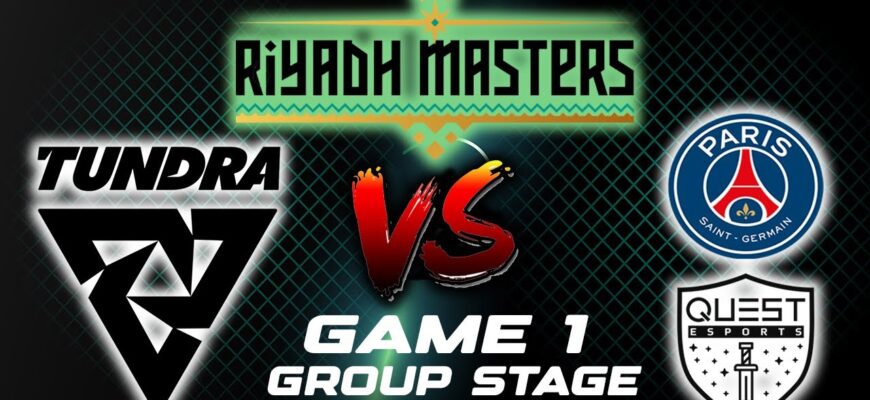In the high-stakes arena of professional Dota 2, the spotlight often intensifies on the `carry` player – the hero responsible for accumulating vast resources and delivering decisive late-game damage. When a team falters, this central figure frequently becomes the primary recipient of fan scrutiny and criticism. However, a recent statement from veteran Dota 2 caster Arseniy “ArsZeeqq” Usov has cast a different light on the performance of Tundra Esports at the Riyadh Masters 2025, suggesting that public perception might be missing the mark entirely regarding Remco “Crystallis” Arets, Tundra`s carry.
- The Usual Suspects: Misplaced Blame in Esports
- The Technical Breakdown: Unmasking the True Weaknesses
- The Leshrac Fiasco (Tundra vs. BB Team, Map 2)
- The Unresponsive Invoker (Tundra vs. BB Team, Map 3)
- The Misguided Storm Spirit (Tundra vs. Team Falcons, Map 1)
- The Broader Implications for Esports Analysis
The Usual Suspects: Misplaced Blame in Esports
The logic is deceptively simple: if the damage dealer isn`t delivering, the team loses. This linear thinking often overlooks the intricate web of team coordination, strategic calls, and the individual performances of supporting roles that collectively contribute to victory or defeat. In the aftermath of Tundra Esports` 0:2 playoff loss to Team Falcons at the prestigious Riyadh Masters 2025, a tournament boasting a formidable $3 million prize pool, the usual chorus of criticism against Crystallis began to resonate across fan communities.
Yet, ArsZeeqq, a seasoned analyst with a keen eye for gameplay nuances, argues that such accusations are fundamentally misdirected. His analysis pivots away from Crystallis, pointing instead to critical misplays and fundamental errors by other Tundra Esports members, suggesting that the team`s struggles run deeper than the performance of their designated hard carry.
“Yes, guys. Crystallis played poorly)),” ArsZeeqq conceded, acknowledging some personal missteps from the carry. “I agree that some builds were not the most successful, but in any case, you are looking in the wrong place.”
The Technical Breakdown: Unmasking the True Weaknesses
ArsZeeqq didn`t stop at a general defense; he offered concrete, technically specific examples that dismantle the popular narrative of Crystallis as the sole impediment. His observations highlight foundational errors in resource management, positioning, and itemization by other players that effectively crippled Tundra`s ability to compete:
The Leshrac Fiasco (Tundra vs. BB Team, Map 2)
During a pivotal Leshrac game against BB Team, ArsZeeqq noted a severe resource management issue. A core hero, holding the team`s highest net worth, was observed prioritizing a passive creep wave clear over critical team engagements. The player, instead of joining a crucial 4v5 team fight where his presence and accumulated gold were desperately needed, opted to return to base, missing the decisive clash entirely. “His teammates fight 4v5 when the hero has the highest net worth on his team. Yes… Crystallis)),” ArsZeeqq remarked, dripping with irony, implying the absurdity of blaming the carry when another high-value hero was AWOL.
The Unresponsive Invoker (Tundra vs. BB Team, Map 3)
Map 3 against BB Team presented another glaring tactical lapse, this time involving an Invoker. This hero, equipped with Boots of Travel – an item specifically designed for rapid map traversal and global presence – repeatedly failed to join team fights. Despite multiple consecutive engagements where Tundra was poised in a favorable position, the Invoker player used their global mobility on creep waves, exposing their location and rendering them useless in the unfolding skirmishes. “The guy with Travels (WITH TRAVELS!) is unable to join 3 or even 4 consecutive team fights and use abilities when the team is in position. Uses Travels on a creep wave and shows up there… yes…) Crystallis))),” ArsZeeqq highlighted, underscoring the profound waste of a critical asset while the carry bore the brunt of fan frustration.
The Misguided Storm Spirit (Tundra vs. Team Falcons, Map 1)
Against Team Falcons, the first map saw a Storm Spirit player make questionable item and engagement choices. The acquisition of an “Eternal Shroud” – an item typically considered suboptimal for Storm Spirit in many scenarios, particularly against a draft with minimal control – was compounded by repeated poor positioning. The player, instead of targeting crucial backline support heroes, was observed using their primary disable, “Vortex,” on enemies already protected by Black King Bar (BKB), rendering the spell ineffective. ArsZeeqq sarcastically quipped, “Kyotaka (an exceptionally skilled player) would have won this game alone… damn))) Crystallis))),” implying that even a solo heroic effort from another caliber of player would have been needed to overcome such fundamental errors, again diverting the blame from Crystallis.
The Broader Implications for Esports Analysis
ArsZeeqq`s pointed commentary serves as a valuable reminder that esports, much like traditional sports, is a complex team endeavor. While individual brilliance and mistakes are certainly part of the narrative, focusing solely on the most visible role often obscures deeper, systemic issues. A carry player`s performance is intrinsically linked to the space created by their teammates, the quality of their initiation, and the enabling they receive throughout the game. When support and offlane players fail to execute fundamental mechanics – whether it`s resource management, timely rotations, or correct target prioritization – even the most skilled carry will struggle to impact the game.
The Riyadh Masters 2025 continues to unfold, with Tundra Esports having faced Team PARIVISION for third place. Regardless of the final standings, ArsZeeqq`s analysis urges fans and analysts alike to look beyond the immediate and often emotionally charged reactions to individual player performances. It`s a call for a more nuanced understanding of professional esports, where collective synergy and the unseen errors of supporting roles can dictate outcomes far more profoundly than the perceived struggles of the designated hero.







